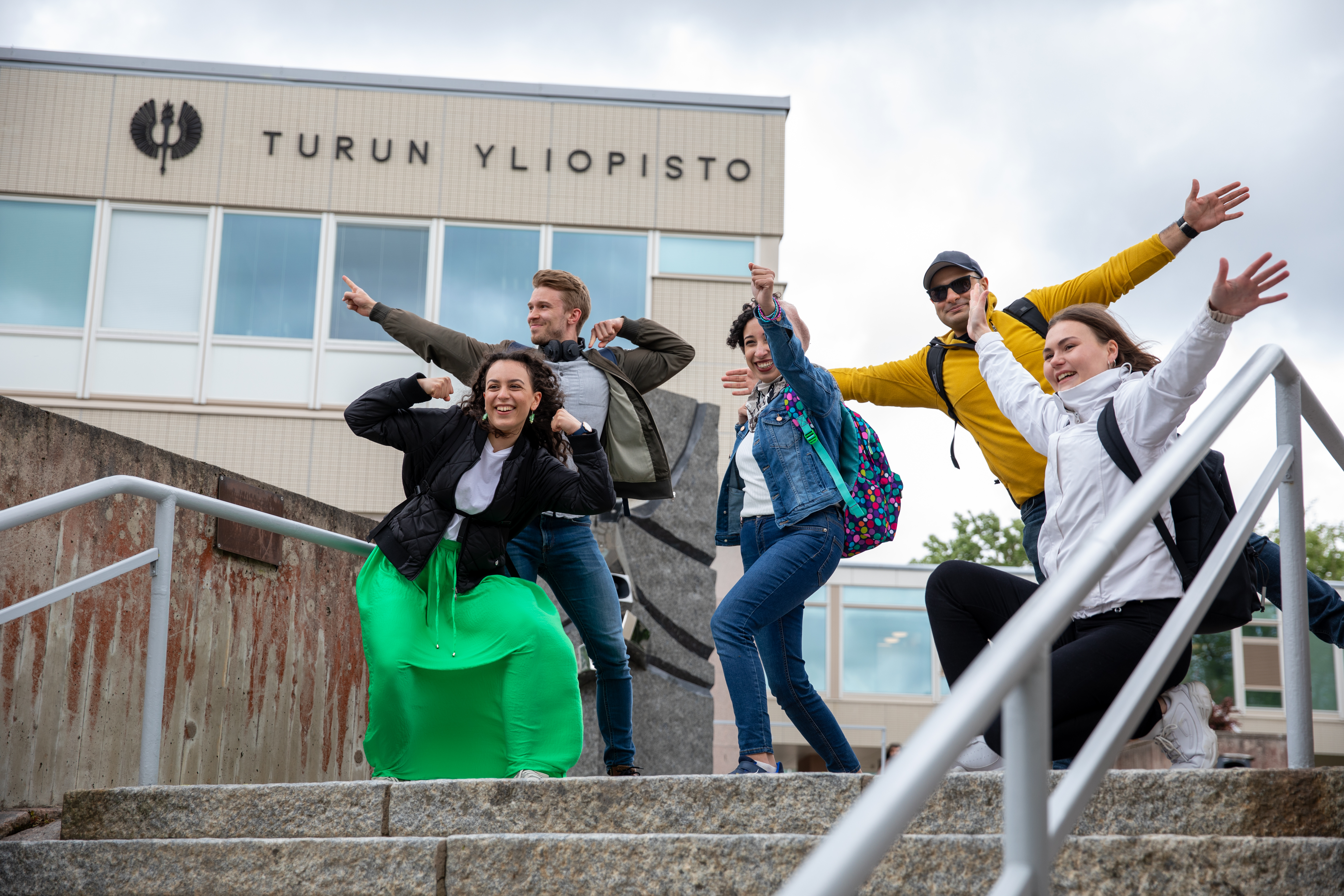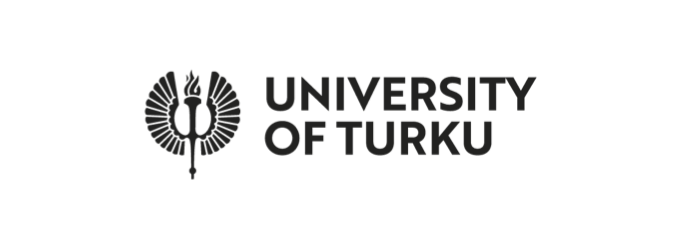Charles Ng’iendo wants to help solve the world’s troubles. He had initially moved to Finland to pursue an undergraduate degree that focused on ICT, Business Administration, finance and Development Economics. He sought to see the world and meet people from more walks of life. After the undergraduate degree, the field of finance turned out too limiting. Ng’iendo wanted something more holistic so that he can contribute as a change-making expert on issues like inequality, interventions and welfare state.
To achieve this goal, he knows that there is no better institution to build a future career with purpose and meaning than at the University of Turku (UTU).
“There is a small percentage of the people at the top, and a growing number of people in poverty. I wanted to know what I can do about the increasing inequality, and UTU’s Master’s Degree Programme in Inequalities, Interventions and New Welfare State programme actually offers practical tools for that,” he says. “If I can participate in something that affects my life either directly or indirectly, or will affect someone I know and beyond, I want to be part of that. That is the path to a better society.”
UTU is one of Finland’s leading and most international universities. Ranked in the top 1% of universities in the world, it is an active international research university, boasting a community of 25,000 students and employees from over 100 countries.
Ever-changing societal and demographic issues challenge the University of Turku to always stay hungry to find new ways to enhance social equality and welfare. Here, scientists, together with students, reinvent social welfare strategies to shape future societies.
The best part? UTU is based in Finland — a country known for national happiness, gender equality, work-life balance and more. Think of it as a living laboratory where you can see and apply the tried and tested best practices on how to build a more sustainable world.
Graduate student Andreas Nolan can attest to this. The Fulbright scholar chose this master’s programme to add to his bachelor’s degree in psychology. “There are these psychologists that study how societal factors impact individuals, but sometimes I felt that the focus was more on the individual when I was more interested in culture, systems, institutions, and how they affect people,” he says.
Nolan sought a career related to policy in a think tank or government organisation – and found the master’s programme matched this goal. “I was interested in the sociology/policy disciplines. INVEST sparked my interest by being a new programme, and a unique programme,” he says.
Plus, Finland sounded like a good place to study and live. “I like that people have a much healthier perspective to work compared to the US. Students take time off computers and studies, and the staff also takes their time off work,” notes Nolan. “In Finland, there is this attitude that when you are off work, you really are off work and other people respect that. I also appreciate that fathers are very involved in their children’s life here — you can see it on the streets.”

Charles Ng’iendo at the “INVEST a way Day” event in Turku. Source: Charles Ng’iendo
Indeed, Finland is the model welfare state — in all the right ways. It makes the ideal backdrop to UTU’s Master’s Degree Programme in Inequalities, Interventions and New Welfare State programme. It’s a cross-disciplinary programme, designed to provide students with rigorous training on social inequalities and welfare, effective social policy or intervention design, and using advanced statistical methods to measure data on these topics.
“MDP INVEST consists of interdisciplinary courses and students are taught by researchers from both the social and behavioural sciences, which is a unique opportunity in both Finland and Europe,” says programme director and assistant professor Mirkka Danielsbacka. “The content of the studies is also rather unique; we have several high-quality courses on quantitative methods, including advanced methods workshops that are taught by leading international experts of different statistical methods.”

Programme Director Mirkka Danielsbacka. Source: Mirkka Danielsbacka
Nolan’s favourite class so far is on Longitudinal and Multilevel Modelling. “In the US, statistics coursework did not feel that applied, so it was hard to see how it can be useful for you,” he says.
Nolan has yet to graduate but he’s glad to see his quantitative research skills are getting better. He credits this to the applied nature of the programme. “It makes students think about research questions they might want to try to answer at some point and going through the process of narrowing that question down, finding data sources you can use to answer the question, and learning about the statistical techniques to actually use to answer it,” he adds. “Quantitative skills are developed in the process of doing academic research. It fits into the larger process which makes it more enjoyable to see how you could use the skills also in your future career”, enthuses Nolan. Aside from landing a promising career after completing his studies, Nolan is considering pursuing a PhD too.
Ng’iendo agrees. “As much as I liked statistics, you need the training to develop it further,” he says. “The INVEST programme allowed me to gain a lot of experience in methodological aspects. It really allowed me to understand them and to apply them to real life situations that might arise. As long as I have the data set, I am now able to play around it, work with it and come up with the best result.”
At UTU, rich and unique modules and pioneering research and teaching are not mutually exclusive. World-class social and behavioural scientists have helped develop the master’s programmes — on top of that, students learn from the best researchers and evidence-based interventions. Simply put, through MDP INVEST, students gain the know-how to become tomorrow’s social welfare experts equipped with a quantitative research-based education.

Andreas Nolan (first from right) during an “American Voices” session at the University of Turku. Source: Fulbright Finland Foundation
“INVEST researchers bring their knowledge and newest research results directly to students. Almost all method courses entail labs with lab teachers where students will practise hands-on methods they learned in lectures. When doing their thesis, students will also be part of the supervisor’s research group,” notes Danielsbacka. With research as its core, in the period between 2019 and 2020, INVEST published 595 scientific publications. It also works with the anti-bullying programme KiVa (developed by UTU and with funding from the Ministry of Education and Culture) that 916 Finnish schools use and has 68 trademarks, among others.
Upon completing the MDP INVEST programme, students can pursue a Doctoral programme on Inequalities, Interventions and New Welfare State (DPInvest) at the University of Turku Graduate School (UTUGS). Here, students will be part of INVEST’s flagship research project, which aims to increase Finnish society’s wellbeing during childhood, youth and early adulthood and prevent psychosocial risks through innovative interventions.
Ultimately, students grow and flourish at UTU. Pair this with the welcoming Finnish society, and it’s little surprise many students are pleased with their programme. Ng’iendo loves his time here. “After living in the metropolitan area of the capital city Helsinki, I noticed the lower density of the population in Turku. I grew up in a very crowded city and I don’t like crowds that much, so I appreciated the space to breathe and focus.”
Follow the University of Turku on Instagram, Facebook, Twitter and LinkedIn











